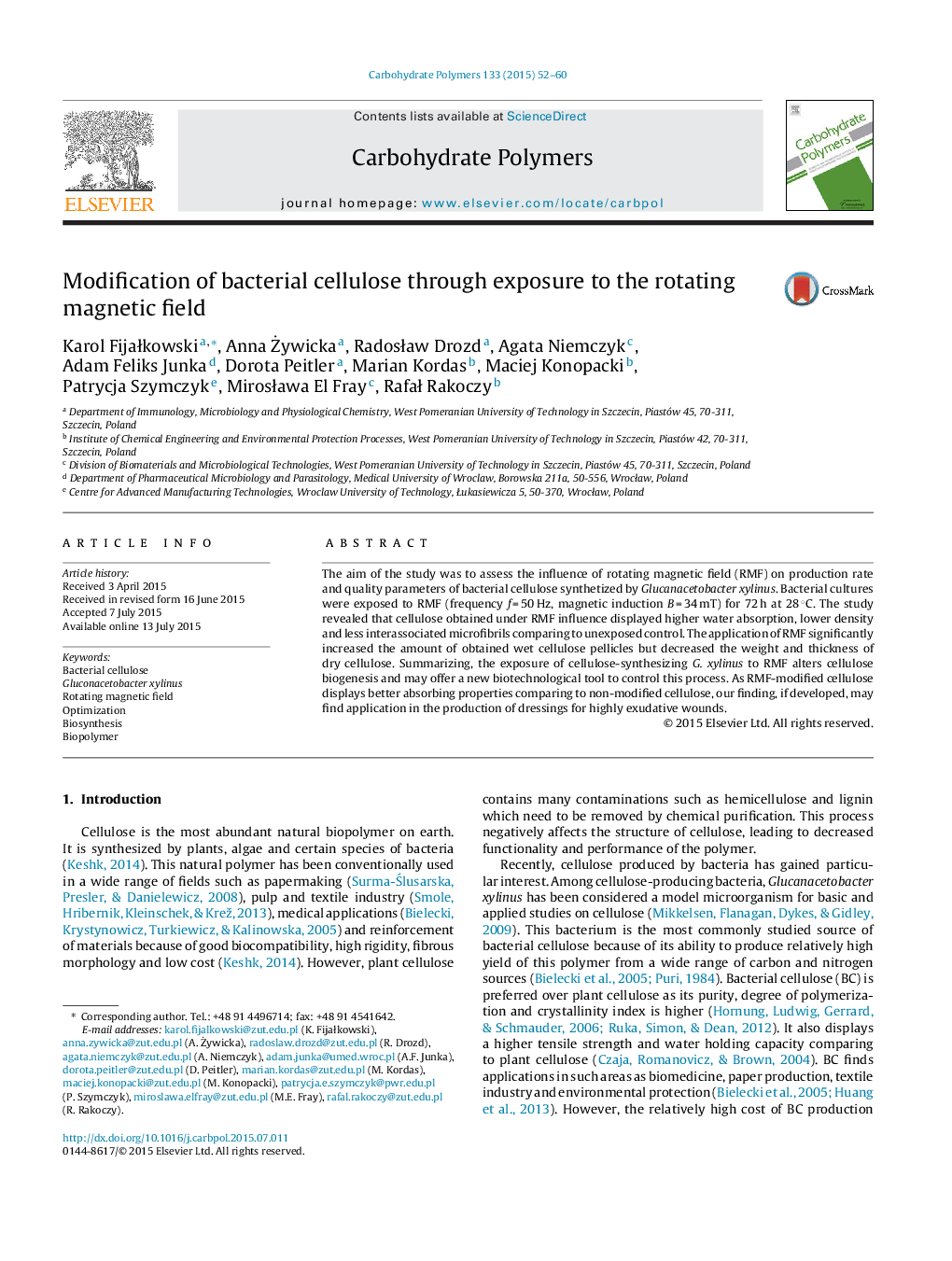| Article ID | Journal | Published Year | Pages | File Type |
|---|---|---|---|---|
| 7787401 | Carbohydrate Polymers | 2015 | 9 Pages |
Abstract
The aim of the study was to assess the influence of rotating magnetic field (RMF) on production rate and quality parameters of bacterial cellulose synthetized by Glucanacetobacter xylinus. Bacterial cultures were exposed to RMF (frequency f = 50 Hz, magnetic induction B = 34 mT) for 72 h at 28 °C. The study revealed that cellulose obtained under RMF influence displayed higher water absorption, lower density and less interassociated microfibrils comparing to unexposed control. The application of RMF significantly increased the amount of obtained wet cellulose pellicles but decreased the weight and thickness of dry cellulose. Summarizing, the exposure of cellulose-synthesizing G. xylinus to RMF alters cellulose biogenesis and may offer a new biotechnological tool to control this process. As RMF-modified cellulose displays better absorbing properties comparing to non-modified cellulose, our finding, if developed, may find application in the production of dressings for highly exudative wounds.
Keywords
Related Topics
Physical Sciences and Engineering
Chemistry
Organic Chemistry
Authors
Karol FijaÅkowski, Anna Å»ywicka, RadosÅaw Drozd, Agata Niemczyk, Adam Feliks Junka, Dorota Peitler, Marian Kordas, Maciej Konopacki, Patrycja Szymczyk, MirosÅawa El Fray, RafaÅ Rakoczy,
